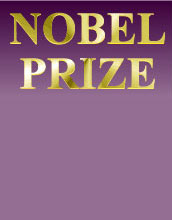Press Statement 04-001
Statement by Dr. Arden Bement, Acting Director, National Science Foundation, On Nobel Prizes in Science and NSF Connections
October 13, 2004
This material is available primarily for archival purposes. Telephone numbers or other contact information may be out of date; please see current contact information at media contacts.
Arlington, Va.--I am pleased to congratulate this year's Nobel laureates in science for their much-deserved recognition. On behalf of the American public, the National Science Foundation (NSF) takes great pride in the remarkable achievements of this year's laureates who have been supported by NSF grants throughout their careers.
Of the 10 2004 Nobelists in science, six were supported by NSF at some time in their careers. The Economics laureates, Finn Kydland and Edward Prescott, received the prize for work funded by NSF.
Kydland and Prescott were awarded the 2004 Nobel Memorial Prize in Economics for their contributions to macroeconomics, particularly in addressing the time-consistency problem in formulating economic policy and in understanding the causes of business cycles. Both Kydland and Prescott have long histories of funding from NSF, which supported the Nobel-honored research. With this year's announcement, NSF has supported 31 of the 55 laureates since the Economics prize was first awarded in 1969.
In Physics, laureates David Gross, David Politzer and Frank Wilczek were honored for their work related to the strong force, which binds quarks into protons and neutrons in the nucleus of an atom. Both Wilczek and Politzer were supported by NSF graduate fellowships while they conducted the Nobel-recognized research, and NSF support for Gross spans many years, beginning at Princeton University where Wilczek was his graduate student and since the mid-1990s at the Kavli Institute for Theoretical Physics (KITP) at the University of California, Santa Barbara. NSF has supported the KITP since its creation in 1979 and supported Wilczek when he was a member of the KITP in the 1980s.
In Physiology and Medicine, Richard Axel and Linda Buck were honored for their research on the sense of smell. Axel had previously been tapped by NSF in 1982 as one of the nation's outstanding young scientists as the recipient of NSF's Alan T. Waterman Award for devising a procedure for introducing genes into mammalian cells.
Since 1950, Nobel Prizes have been awarded to more than 150 U.S. and U.S.-based researchers who have been supported by NSF grants throughout their careers. Established "to promote the progress of science," NSF supports fundamental research in many disciplines, and the significance of and success in that mission is reflected, in part, by the number of NSF-supported scientists recognized with Nobel Prizes for their discoveries.
-NSF-
Media Contacts
David Hart, NSF, (703) 292-8070, email: dhart@nsf.gov
The U.S. National Science Foundation propels the nation forward by advancing fundamental research in all fields of science and engineering. NSF supports research and people by providing facilities, instruments and funding to support their ingenuity and sustain the U.S. as a global leader in research and innovation. With a fiscal year 2023 budget of $9.5 billion, NSF funds reach all 50 states through grants to nearly 2,000 colleges, universities and institutions. Each year, NSF receives more than 40,000 competitive proposals and makes about 11,000 new awards. Those awards include support for cooperative research with industry, Arctic and Antarctic research and operations, and U.S. participation in international scientific efforts.
Connect with us online
NSF website: nsf.gov
NSF News: nsf.gov/news
For News Media: nsf.gov/news/newsroom
Statistics: nsf.gov/statistics/
Awards database: nsf.gov/awardsearch/
Follow us on social
Twitter: twitter.com/NSF
Facebook: facebook.com/US.NSF
Instagram: instagram.com/nsfgov



